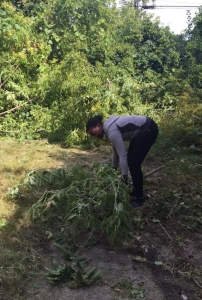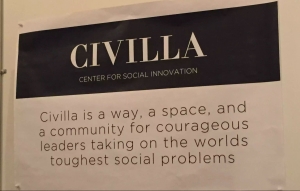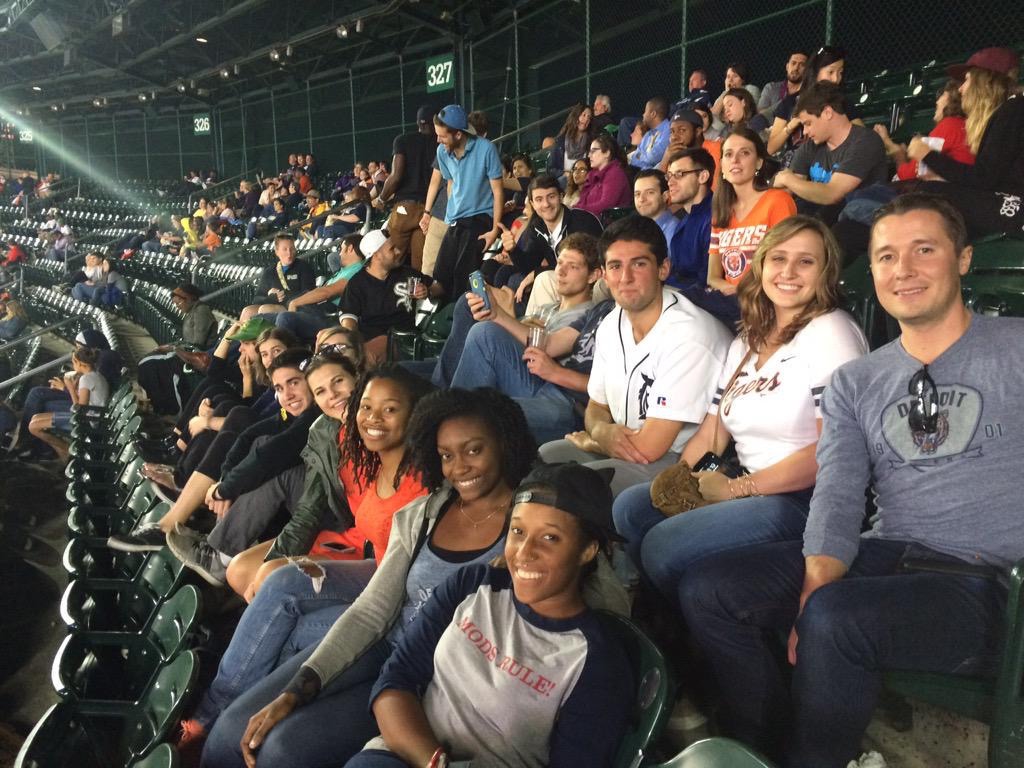Part I
On Being Healed From Being Home: How Detroit’s Arts Community, Grind, & Hustle Has Begun To Revitalize Me
The phrase “there’s no place like home” has never resonated with me so much as when I returned to Detroit several months ago in May. At long last I’d made it through four challenging years of college in Massachusetts, and coming home meant finally being able to take a huge first step towards the healing process which I’d been so eager to begin post-graduation. During my time away a few life altering tragedies had occurred, and being home has been everything I could want and need to begin healing from those experiences. In high school, when I first started to become more heavily involved in Detroit’s poetry community, I had blossomed and thrived under the guidance of some of Detroit’s most brilliant poets. I’d been connected to most of these poets through a program called Inside Out. Therefore, it was natural for me to turn to the arts when looking for restoration. During the second half of summer I threw myself into the open mic scene letting the words of passionate pen warriors wash over my wounded spirit. I even hit the mic a few times myself. Peace is sometimes standing at the front of a room pouring your soul out to a crowd full of strangers.
In addition to submerging myself in the arts, being back in the city also meant, I was now surrounded by the unique energy that is the Detroit Grind. It’s the Detroit Grind and the hustle here that instilled the entrepreneurial spirit in me before I knew what to call it. I had never heard the word innovation more times than when I first arrived at Babson College in 2011. In the last several years innovation has become a commonly used buzzword that I’m sure is now spouted out in boardroom meetings from here to Beijing. After a couple of years of being immersed in the language of entrepreneurship and innovation I had an important realization. It dawned on me that the majority of the conversations happening in relationship to Entrepreneurial Thought and Action (ETA) and innovation were predominantly being focused through a professional lens when these were concepts that, where I come from, were infused into most people’s everyday lives.
It became clear to me that for some people in some places the concept of ETA and innovation is a choice. The keys their company or organization needed to open the treasure chest where inside lay the latest most popular definition of success. However; in a place like Detroit, for a lot of people (most people), ETA and innovation–ingenuity, creativity, or inventiveness–aren’t choices. They are, and have been for a long time now, necessary tools for survival. Growing up in this city I have seen people routinely make a way out of seemingly no way. So really it is almost comical to see people waltz into Detroit with their talk of innovation and revitalization as if it is something new to us. As if life without innovation was ever a privilege Detroiters could afford. What we call grinding my college textbooks call Entrepreneurial Thought and Action. What we call hustling a CEO of a fortune 500 company calls innovation, and all I have to say about that is “a rose by any other name would smell as sweet.” To revitalize means to “breathe new life into,” and there are people who have continuously offered up all the air in their lungs to this city and, more importantly, to it’s people; and might I add, it has not been for an expected return on investment. These have been acts of selflessness and love, because where I come from taking care of your home the best you can is just what you do.
Detroit is a city full of dedicated citizens that have only made it this far, through all of the economic turmoil and the additional burden of being considered America’s unwanted stepchild, because of ETA and innovation–the hustle and the grind. Without them Detroit would have actually become the desolate wasteland the media has made us out to be. Even when the population was at its lowest. People were still here. Fighting to survive. When there were no resources and support. People were still here. Living in the face of deterioration. To be back home and wrapped up in this energy is like having an I.V. running heavy doses of hope and perseverance through my veins.
Part II
On The Mixed Bag of Emotions That Come With Being A Challenge Detroit Fellow & Detroiter
Although I was excited to start my Challenge Detroit fellowship I was also a bit weary. Here are the facts. I am 1 of 5 black fellows out of a total of 31 fellows that were selected as finalists and then hired by a partnering host company. Of those 5 fellows 3 of us were raised in the city. A city that is predominantly black. From the outside looking in I knew Challenge Detroit appeared to have done good work. I was also close with a fellow (a black fellow from Detroit) from the previous cohort who felt good enough about his experience to encourage me to apply, but despite my efforts to be open minded there was a healthy amount of skepticism and caution that remained as orientation approached.
Challenge Detroit’s orientation was appropriately referred to as Boot Camp as it was filled with loads of rich information and experiences. By the weeks end Challenge Detroit had convinced me that they would be a program I could be a proud member of–as both a fellow and a Detroiter. They spoke repeatedly of the importance of empathy and introduced us to Human Centered Design through Civilla—”a center for social innovation using human centered design to impact the wicked problems facing cities and citizens.” Human Centered Design is exactly what it sounds like. It’s design thinking that keeps humans at the center of it’s process or a “process that starts with the people you’re designing for and ends with new solutions that are tailor made to suit their needs.” We are expected to use Human Centered Design thinking throughout the next year as we make efforts to engage with the community and conquer our designated challenges. During Boot Camp we talked frankly about issues surrounding the racial tension and gentrification in the city, and we had sessions with The Michigan Round Table For Diversity and Inclusion and Deep Dive Detroit—organizations that specialize in having discussions about race relations in Detroit from both a historical and current perspective.
By the end of Boot Camp I felt significantly more confident in the program’s claimed intentions. I could see that they were not the wolves dressed in sheep’s clothing that I thought they might be. They are not here to encourage their fellows to dress in body suits and red capes so they can spend the next year “revitalizing” or “columbusing” my city as if nothing and no one existed here before they arrived. Instead I was pleasantly surprised to find that they are truly dedicated to bringing in about 30 brilliant and talented people from around the US whom they will encourage to be active and engaged members of Detroit’s communities. They do not pretend to know all there is to know about what it will take to become a part of these communities in a way that is not oppressive to its most vulnerable citizens, but I feel as though it’s safe to say they’re trying their best. They are willing to do what they feel is necessary to progress, and if they stumble along the way they are unafraid to change course so as to be a true asset to the city and it’s communities. So far they have held true to their core values, and have made it clear that they are not only here to challenge us as fellows, but are also willing to be challenged as a program.
This is not to say that I don’t still have mixed emotions surrounding my experience. How can I not? For there is so much varied and important work to be done. There are of course small businesses to be supported and an economy to rebuild, but there are also families who should be able to keep their homes instead of being displaced from them, and still more families who need water to be cut on in the homes they occupy.
I do not pretend to be the most patient individual when it comes to demanding and aiding in positive progression, but when I feel that not enough work is being done I try to recall an anecdote told by an elderly gentleman at the end of a brilliant documentary called Watchers of The Sky. In the documentary the elderly man tells the story of another man who asks the King’s permission to live in a tower and chart the stars. The man in the story essentially wanted to discover the secrets of the universe. For years he recorded all of his observations. When asked what he had discovered he admitted that he’d failed to discover anything up to that point. However; he went on to say that he felt that was okay, because someone after him would see his work and be that much closer to making a discovery than he was. Years later NASA read and referenced his findings for their own work. That story in turn always makes me think of a quote from Tupac–“I’m not saying I’m going to rule the world or that I’m going to change the world, but I guarantee that I will spark the brain that will change the world.” When I think of this story and quote I remember that every effort made is an important one, but I am also committed to challenging myself and those around me to be as revolutionary as possible in our ideation. For our greatest overall challenge is to foster ideas that effect positive change in a way that is systematic and subsequently long lasting.




